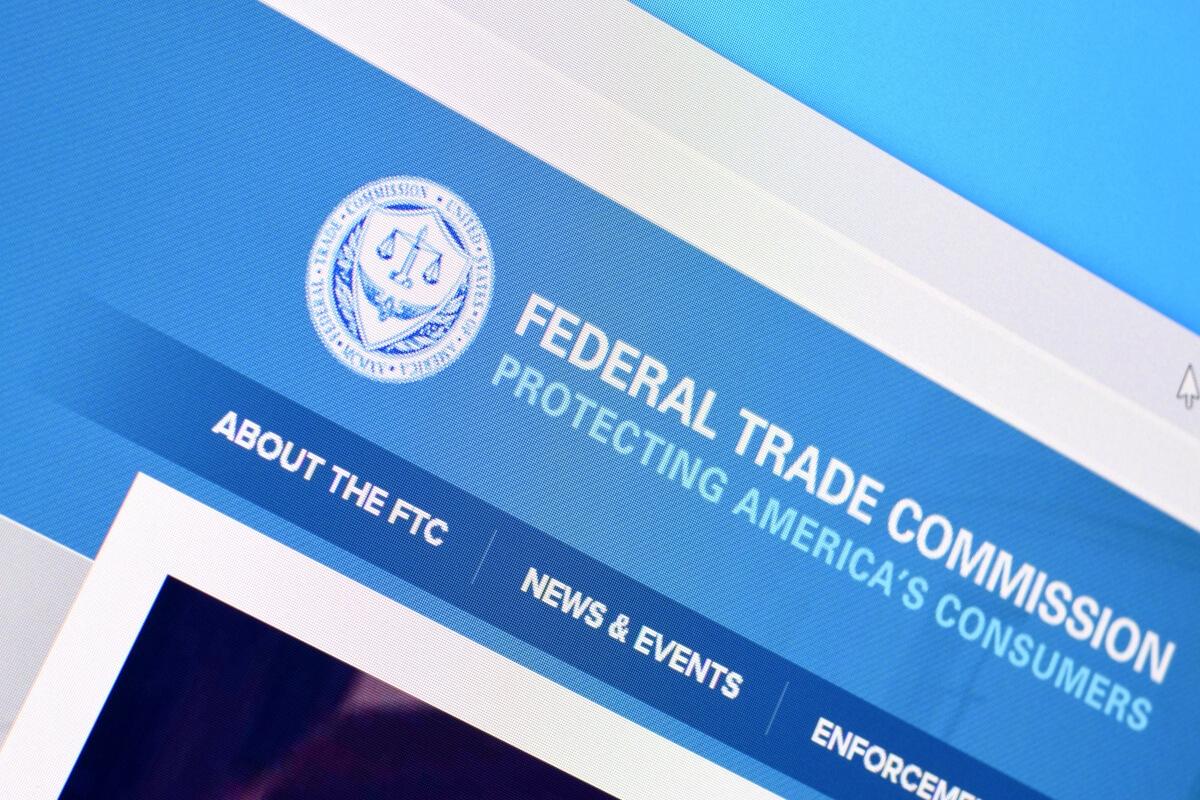The Internet is an incredible resource for renters, offering benefits like virtual tours, online applications, and quicker communication with landlords. However, as great as it may be, the Internet has also posed many challenges for renters — most notably, the growing risk of rental scams.
Rental scams are a prevalent issue in today’s rental landscape. Renters must exercise caution when browsing listings, making payments, or sharing personal information. If they’re not careful, they risk falling prey to scams, which can lead to financial loss and a stressful recovery process.
In this article, we’ll break down the ins and outs of rental scams, including red flags to look out for, tips for verifying listings, and what to do if you encounter a rental scam. Here’s an overview of some questions we’ll answer:
- What are rental scams, and how do they work?
- What are the signs of rental scams?
- How can I avoid rental scams?
- How should I proceed if I encounter a rental scam?

What Are Rental Scams and How Do They Work?
A rental scam is a falsified property listing used to lure unsuspecting renters into paying money or providing personal information. These postings will usually contain stolen photos, fake addresses, and false descriptions that are seemingly legitimate. When an unsuspecting renter applies or submits a deposit, what usually happens is that the “landlord” will disappear and take the money/information with them.
Rental scams can be found on various platforms, including rental listing websites, social media, and classified ads. However, regardless of the platform, the Federal Trade Commission (FTC) will usually classify rental scams in one of two ways:
- Stolen Listings: Some scammers take legitimate rental ads, replace the original contact details with their own, and pose as the property owner or agent. To avoid falling for this scam, search the property address online to see if the same listing appears on other websites. Make sure the contact information matches across all platforms.
- Fake Listings: Other scammers create entirely fake rental ads for properties that are unavailable or don’t exist at all. To confirm whether a listing is genuine, perform a reverse image search on the photos in the ad. Right-click on an image and select “Search the web for the image” to check if the pictures are stock photos or tied to another (possibly real) listing. This is a quick and easy way to avoid being misled.
Luckily for renters, scams have plenty of tells. Rental scams are easy to spot once you know what you’re looking for, which leads us to our next section: how to spot a rental scam.

How to Spot a Rental Scam
Now that you have some background on rental scams, let’s talk about how to spot one. Generally, fake property listings should be easy to detect, especially if they have glaring errors or inconsistencies. As you browse listings, here are some red flags to watch out for:
Vague listing descriptions
A legitimate property listing will have details. We’re talking square footage, number of bedrooms, recent renovations – the whole nine yards. If a listing doesn’t contain these kinds of details and instead has short, nondescriptive descriptions and photos, it’s probably fake.
Incorrect spelling and grammar
Incorrect spelling and grammar is a tell-tale sign of a rental scam. If you discover misspellings and formatting issues through the listing, you’re better off looking elsewhere. No legitimate and professional landlord or property manager would publish a listing with obvious errors of this kind.
Unrealistic pricing
If a price seems too good to be true, it’s probably a scam. Yes, sometimes landlords and property managers offer sweet deals to attract tenants, but extremely low prices are usually a sign that something isn’t right – especially during peak season. If you’re apartment hunting in the summer and find the perfect property with an even more perfect price, you shouldn’t get your hopes up. Always proceed with caution and do your research before pursuing these kinds of listings.
Suspicious screening requests
You’ll always undergo some sort of screening process when applying for an apartment. In doing so, you will be asked to provide some personal information and background on yourself, such as income and employment history. However, you should never be asked for confidential information like your social security number or bank account details before signing a lease. If a landlord or property manager has these suspicious screening requests, it’s best to steer clear of that listing.
Urgency and pressure tactics
Yes, most landlords and property managers are eager to fill their listings. However, a professional and polite landlord will not insensately pressure you to make a decision and put down a deposit. If someone exhibits this urgency and crosses your boundaries, they’re likely a scammer. Beware of this kind of behavior when inquiring about listings.

7 Tips to Avoid Rental Scams
Knowing the signs of a rental scam is a good start to avoiding them. However, there are other preventative measures you can take to protect yourself. Check out our list of tips to steer clear of rental scams below:
Do your research
Before contacting anyone about a rental listing, you should do some research. Start by cross-referencing the listing across multiple reputable websites and platforms to confirm the property’s existence and ensure it’s located in a legitimate residential area. Check for additional online listings of the same property—do the contact details remain consistent across platforms? If the property appears on only one site or shows conflicting information, it could be a red flag.
You should also verify the listing’s ownership. Use public databases or county assessor’s records to verify that the individual claiming to be the landlord or property manager is legitimate. These steps can help protect you from potential rental scams and ensure you’re dealing with a real listing.
Insist on in-person viewings
When pursuing a rental property, always insist on viewing the property in person before committing to anything. Beware of excuses from the supposed landlord or agent for why they cannot show you the property. Trust your instincts during the viewing—if something feels off or doesn't align with the listing details, it's smart to step away and explore other options.
Verify the landlord or agent
You should always vet your landlord or agent when you’re serious about a rental listing. Ask to see their identification and ensure it matches the details provided in the listing and any correspondence. If you're working with a property management company, independently confirm their credentials and contact information to ensure their legitimacy. Taking these precautions will protect you from potential rental scammers looking to extort you.
Use secure payment methods
Typically, you’ll want to avoid cash transactions when pursuing a rental listing. Always opt for secure payment methods like checks or credit cards. If a landlord or agent insists on cash payments or money wire transfers for payments, it could be a sign of a rental scam.
Additionally, take the time to carefully review all lease documents before signing. Ensure the agreement clearly outlines all relevant terms and conditions. If you’re unsure about any details, seeking legal advice can help you fully understand your rights and obligations.
Be careful with your finances
Never send money or provide financial information before physically visiting the property. Scammers often use excuses such as being out of town to pressure you into sending money sight unseen. However, you should never take a no for an answer. If you can’t view the property yourself, ask someone you trust to check it out on your behalf. Have them video call you during the tour so you can thoroughly assess the space and confirm its legitimacy.
Pay attention to pricing
Earlier, we mentioned how unrealistic pricing could indicate a potential rental scam. If you find a listing priced significantly below market value, make sure to proceed with caution. Start by conducting some market research—compare the rent prices of similar listings in the same area with comparable features. Familiarizing yourself with the city or neighborhood where you’re searching for an apartment will help you understand the typical rental rates and identify any suspiciously low offers.
Pay attention to landlord behavior
Pay attention to how the landlord or agent communicates with you. Are they overly pushy, aggressive or dismissive of your questions and concerns? Do they seem eager to get you to sign a lease without giving you much time to think it over? These high-pressure tactics could signify a rental scam.
Signs you may be dealing with a pushy landlord include:
- They give you an urgent deadline to pay a deposit.
- They don’t want to run a background or credit check.
- They are over-eager to collect payment from you.
Stay vigilant and look for landlords or agents who value transparency and professionalism.

What to Do if You Encounter a Rental Scam
There are a series of steps you should take when encountering a rental scam. They are as follows:
- Stop all further communication with the supposed landlord or property manager.
- Report the scam to the rental listing website, social media platform, or classified ad where you found it.
- Notify local law enforcement and/or the FTC and file a report with them regarding the incident.
- If you’ve already sent money or provided personal information, take immediate action by notifying your bank and credit card company to protect your accounts.
- Consider seeking legal assistance if you’ve suffered financial loss due to a rental scam.
The key to protecting yourself from rental scams is staying alert and informed about the warning signs we've discussed. By approaching your search with caution and diligence, you can secure the perfect rental property without falling prey to these deceptive schemes.
Apartments.com takes renter safety seriously by providing valuable resources and tips to help you spot and avoid scams. Learn more about how we protect renters from fraud by reading our other resources on Avoiding Scams and Fraud.
This article was originally published on February 21, 2019, by Shannon Jones.
FAQs
How can you identify a rental scammer?
Rental scammers often ask for money upfront before showing the property or providing a lease. They may also claim to be out of town, communicate only via email, or avoid answering specific questions about the property.
How do you know if a landlord is legit?
A legitimate landlord will provide proper documentation, such as a lease agreement, and will be willing to meet in person or have someone show the property. You can also verify their ownership of the property through public records or by checking reviews if they’re part of a larger rental company.
What are some red flags when searching for an apartment?
Watch out for deals that seem "too good to be true," landlords who rush you to send money, or listings with vague details and no in-person tours. Another red flag is poor communication or landlords who refuse to verify their identity or provide an in-person tour.






